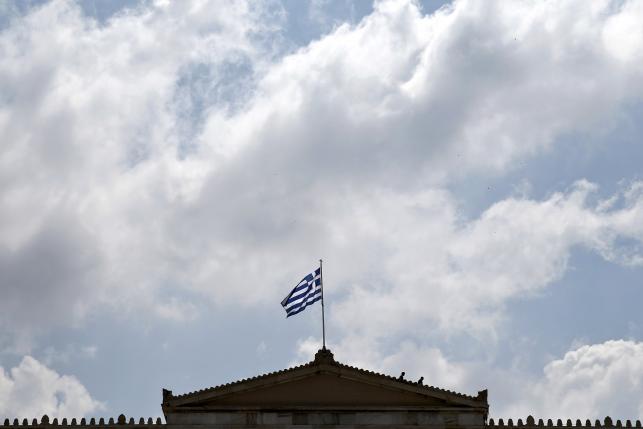Pressing for Greek concessions, Merkel and Hollande keep Tsipras waiting

BRUSSELS/ATHENS – Greece and its international lenders moved closer to the brink on Wednesday with the leaders of Germany and France holding off on an expected meeting with Prime Minister Alexis Tsipras to press for more concessions from the Greek side.
Athens said it was waiting for the creditors to respond to ideas it put forward on Monday. Euro zone officials said the proposals were inadequate to plug holes in the Greek budget and also dodged key reforms to make the economy more competitive.
Without an agreement to unlock more aid money, Greece risks default.
"The Greek government has submitted its proposal to the institutions, along with two supplementary documents with specific alternatives on the fiscal gap and the sustainability of Greek debt ... So far, there has been no comment or response to the Greek representation in Brussels," a Greek official said in a statement.
Athens is likely to default on a 1.6 billion euro repayment due to the International Monetary Fund at the end of June unless it receives fresh funds from its frozen bailout or the European Central Bank lets it sell more short-term debt to Greek banks.
That will only happen if the two sides can agree in the coming days on a cash-for-reform deal that has been the focus of acrimonious negotiations for the last four months.
A default could lead to the imposition of capital controls and possibly put Greece on a path to becoming the first country to leave the 19-nation single currency area, undermining the euro's avowed irreversibility.
German Chancellor Angela Merkel and French President Francois Hollande had been due to meet Tsipras on the sidelines of an EU-Latin America summit in Brussels to move the debt talks forward, but a French source said nothing was arranged so far.
"No meeting is planned at this stage - we'll see what happens when we get there," the source said.
The European Commission said its chief, Jean-Claude Juncker, who accused Tsipras on Sunday of misrepresenting the creditors' proposals and misleading his parliament, had no plans as yet to meet the Greek premier either.
"For this final push, the Commission is of the view that the ball is now clearly in the court of the Greek government which needs to follow up on the agreement at the meeting with President Juncker last Wednesday night," spokesman Margaritis Schinas told a news conference.
An EU official said the Greeks had made no advance since submitting a three-page proposal on Monday viewed as insufficient because it did not address pension reform or labor market measures sought by the creditors.
"If there is no movement, there is no meeting," the official said.
DEBT RELIEF SOUGHT
For its part, Greece appears to be insisting it will not sign any deal unless it contains a commitment to official debt relief, while the creditors say they will only start discussing debt rescheduling once a deal is signed and implemented.
The brinkmanship carries risks for both sides.
The EU official said the Greek proposal on fiscal targets did not address how Athens would arrive at them. The primary surplus targets were also marginally below those requested by the creditors.
Athens also sent in a document on debt restructuring, which the creditors dismissed as irrelevant now because Greek debt sustainability could only be assessed once it implements reforms promised in exchange for aid it has already received.
After European Commission President Jean-Claude Juncker met Tsipras on June 3, the Commission asked Greece to put forward alternatives to the creditors' proposals it rejected on pensions and Value Added Tax.
While more talks between Athens and the institutions could take place on Wednesday, the creditors say it is now impossible to disburse the remainder of the money available to Greece under the existing bailout -- 7.2 billion euros -- without a formal extension of the bailout beyond its June 30 expiry date.
Financial markets have taken the Greek debt impasse in their stride, with little impact on euro zone bonds and stocks other than Greek financial instruments, even in a stressful period for government bonds globally.
In the past two months, as bond yields jumped worldwide due to improving inflation and growth expectations, the gap between benchmark German Bund yields and Italian, Spanish or Portuguese borrowing costs over 10 years has widened only slightly.
EU officials say the euro zone has put in place institutions since the start of the Greek crisis in 2010 with a financial rescue fund, a single banking supervisor and resolution system and better enforce fiscal rules that would prevent contagion to other peripheral states if Athens were to leave the euro.
Some market specialists are less certain.
"If Greece does exit then it is possible that all hell breaks loose and that risk assets and peripheral government bonds suffer," said Gary Jenkins, chief credit strategist at LNG Capital.
"However the least likely outcome is that Greece leaves and that the Eurozone takes no measures to stop speculation that it might fall apart." –Reuters







